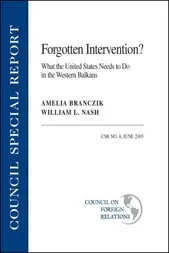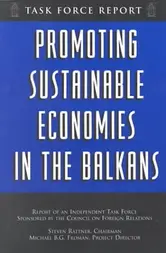- China
- RealEcon
- Topics
-
Regions
Featured
-
Explainers
Featured
Interactive by Olivia Angelino, Thomas J. Bollyky, Elle Ruggiero and Isabella Turilli February 1, 2023 Global Health Program
-
Research & Analysis
Featured
Report by The Council of Councils June 30, 2024
-
Communities
Featured
Webinar with Carolyn Kissane and Irina A. Faskianos April 12, 2023
-
Events
Featured
Virtual Event with Emma M. Ashford, Michael R. Carpenter, Camille Grand, Thomas Wright, Liana Fix and Charles A. Kupchan June 25, 2024 Europe Program
- Related Sites
- More
Europe and Eurasia
Kosovo
-
Australian Submarine Deal, Asian Security Summit, Blinken in Finland, and MoreThe International Atomic Energy Association reports on the nuclear-powered submarines that the United States and the United Kingdom will provide to Australia within the AUKUS alliance; world leaders and defense officials meet in Singapore for Asia’s premier security event– the Shangri-La Dialogue; U.S. Secretary of State Antony Blinken wraps up his Nordic tour with his final stop in Helsinki, meeting with Finnish officials to discuss North Atlantic Treaty Organization (NATO) priorities; and NATO sends additional troops to Kosovo to respond to ethnically-charged clashes.
-
Thai Hold an Election, Kosovars Commemorate NATO’s War, and MoreThailand conducts its first general election since the 2014 military coup, and Kosovo commemorates twenty years since the end of the war.
-
A Conversation with Hashim ThaçiPresident Hashim Thaçi of Kosovo discusses his country's ten years of independence, its progress in joining international organizations such as the United Nations and the European Union, and the country's foreign policy in the region.
-
The World Next Week: February 23, 2017President Donald J. Trump addresses Congress, the UN Security Council debates Kosovo, and the 89th Academy Awards are held.
-
The World Next Week: Februrary 13, 2014President Barack Obama travels to Mexico; talks on Iran's nuclear program resume; and Kosovo marks the sixth anniversary of its independence.
-
Kupchan: Recognizing Kosovo Least Bad Option for United StatesInterview: CFR’s Charles A. Kupchan says recognizing Kosovo as independent is the best pragmatic solution from a list of bad options.
-
Wisner: Russian Opposition to Kosovo Independence ’Unbelievably Regrettable’Washington’s representative to talks on Kosovo, Frank G. Wisner, says Serbia will never recognize an independent Kosovo and that Russia’s role has been “unbelievably regrettable.”
-
Kupchan: Russian Opposition to Kosovo Independence ‘Perplexing’Charles A. Kupchan, CFR’s top Europe expert, says with Kosovo on the cusp of announcing independence, he finds the continued Russian opposition “perplexing.”
-
Holbrooke: Kosovo Independence Declaration Could Spark CrisisRichard C. Holbrooke, the architect of the Dayton Accords that ended the Bosnia war, says Russia’s uncooperative attitude in Kosovo combined with western inaction could spark renewed conflict.
-
The Future of Kosovo: A Conversation with R. Nicholas BurnsLast week, UN special envoy Martii Ahtisaari met with the Security Council to discuss his proposal for Kosovar independence. Ahtisaari’s plan is the basis for a resolution being discussed this week in the Senate Committee on Foreign Relations. Join Undersecretary Nicholas Burns for a timely discussion regarding the prospects for a sovereign Kosovo. **Please note special time.**6:30-7:00 p.m. - Cocktail Reception7:00-8:00 p.m. - Meeting
-
Serbs Urged to Accept Kosovo Plan to Gain ‘European Future’A top U.S. State Department official on Balkan policy says Serbia must begin participating in final talks over the conditional independence of Kosovo or face increased isolation from Europe.
-
Kosovo Eyes IndependenceRecent talks in Vienna have revived speculation about the prospects for a near-term solution to the final status of Kosovo. Some experts believe an agreement on Kosovo’s independence could be on the horizon, though there are still myriad factors that could influence efforts to resolve the province’s status.
-
Forgotten Intervention?
![]() Overview The price of U.S. and EU inaction in the western Balkans was amply illustrated in the 1990s, as opportunities for preventive action were squandered and the former Yugoslavia descended into brutal and devastating ethnic conflict, first in Croatia and Bosnia and Herzegovina and later on in Kosovo. As is always the case, military intervention and the need for post-conflict reconstruction consumed significant U.S. resources—far more than the cost of thoughtful and decisive preventive action. A decade and a half later, the United States has another opportunity for preventive action, this time to avert a renewed crisis in Kosovo and achieve progress in Bosnia and Serbia and Montenegro that will help stabilize the region. This report builds on the Center for Preventive Action's 2002 Task Force report, Balkans 2010. It identifies the principal steps that the United States can take to secure the investment it has made in the western Balkans and facilitate the region's progress toward its rightful destiny within the EU. In doing so, Forgotten Intervention? lays out a straightforward and doable strategy for the United States that will pay dividends. This publication was made possible in part by a grant from Carnegie Corporation of New York. The statements made and views expressed are solely the responsibility of the author.
Overview The price of U.S. and EU inaction in the western Balkans was amply illustrated in the 1990s, as opportunities for preventive action were squandered and the former Yugoslavia descended into brutal and devastating ethnic conflict, first in Croatia and Bosnia and Herzegovina and later on in Kosovo. As is always the case, military intervention and the need for post-conflict reconstruction consumed significant U.S. resources—far more than the cost of thoughtful and decisive preventive action. A decade and a half later, the United States has another opportunity for preventive action, this time to avert a renewed crisis in Kosovo and achieve progress in Bosnia and Serbia and Montenegro that will help stabilize the region. This report builds on the Center for Preventive Action's 2002 Task Force report, Balkans 2010. It identifies the principal steps that the United States can take to secure the investment it has made in the western Balkans and facilitate the region's progress toward its rightful destiny within the EU. In doing so, Forgotten Intervention? lays out a straightforward and doable strategy for the United States that will pay dividends. This publication was made possible in part by a grant from Carnegie Corporation of New York. The statements made and views expressed are solely the responsibility of the author. -
Balkans 2010Overview Despite years of involvement by the United States and its allies, the Balkans region is suffering from economic stagnation and high unemployment; hundreds of thousands of refugees still await resettlement; prominent war criminals remain at large; and political and legal reform is impeded by endemic corruption, organized crime, and in some cases, a lack of political will. Yet after a decade of extensive involvement and peacemaking in the Balkans, the United States and its allies are winding down their commitment to the region. At this critical juncture, warns this independent Task Force report, if the problems besieging the Balkan states are left unresolved, they will lead to serious social and economic instability for southeastern Europe. Neglecting these problems will lead to growing poverty, an increase in illegal economic activity, further human displacement, and a greater likelihood of political extremism, all in the heart of Europe. Furthermore, the report asserts, abandoning the Muslim populations of Bosnia and Kosovo will further reduce U.S. standing in the Muslim world and may encourage Balkan Muslims to turn to religious militants, rather than to Europe, for protection. It is therefore essential that the stakeholders in the Balkans, particularly the United States and the European Union (EU), make clear the economic, political, and security benefits of reform and cooperation with European standards and institutions and be equally explicit about the penalties--including the withholding of financial aid and international isolation--for regression, obstructionism, or the use of violence. To help the Balkans achieve stability and integration in Europe, the Task Force makes the following key recommendations: reorganize the international community’s involvement in the Balkans around the EU’s Stabilization and Association Process and NATO’s Membership Action Plan and Partnership for Peace program, with the goal of an orderly reduction of the overall international presence in the region by 2010; use “carrots” (such as access to privileged political and economic relations and favorable trade terms with Europe) and “sticks” (such as linking financial assistance to specific performance goals) to reward or compel political, economic, social, and security reform; implement internationally led law enforcement campaigns, initially in Bosnia and Kosovo, to cripple the politico-criminal syndicates that threaten internal and regional security; and establish the rule of law and develop transparent and accountable systems of criminal and civil justice that are fair to all citizens.
-
Promoting Sustainable Economies in the Balkans
![]() The conflict in Kosovo, less than four years after the brutal civil war in Bosnia, was a wake-up call to the international community. The West and others had once again underestimated the powerful forces of ethnic hatred and historical grievances in the Balkans. According to this independent Task Force report, economic reconstruction alone will not be sufficient to bring long-term peace and stability to the Balkan region, although raising living standards could foster sustainable economic growth and reduce political tensions. International support and attention is a wasting asset, the report warns, and the countries in the region have only a few years to demonstrate real progress before the international community turns its focus elsewhere. Reform will be difficult. But if the Balkan countries do not reform, there will be severe limits to the amount of assistance they can expect from the outside world, and, in the absence of reform, foreign financial assistance will be of only limited utility. The Balkan counties cannot expect significant international support if they are not committed to taking the necessary steps to put themselves on the right track, and that support will be of only limited utility unless those steps are taken. Moreover, the European Union (EU) will have to articulate more clearly and credibly a path toward European integration for the Balkan economies, since the prospect of integration in the EU may well be the single most important motivating factor for undertaking reform.
The conflict in Kosovo, less than four years after the brutal civil war in Bosnia, was a wake-up call to the international community. The West and others had once again underestimated the powerful forces of ethnic hatred and historical grievances in the Balkans. According to this independent Task Force report, economic reconstruction alone will not be sufficient to bring long-term peace and stability to the Balkan region, although raising living standards could foster sustainable economic growth and reduce political tensions. International support and attention is a wasting asset, the report warns, and the countries in the region have only a few years to demonstrate real progress before the international community turns its focus elsewhere. Reform will be difficult. But if the Balkan countries do not reform, there will be severe limits to the amount of assistance they can expect from the outside world, and, in the absence of reform, foreign financial assistance will be of only limited utility. The Balkan counties cannot expect significant international support if they are not committed to taking the necessary steps to put themselves on the right track, and that support will be of only limited utility unless those steps are taken. Moreover, the European Union (EU) will have to articulate more clearly and credibly a path toward European integration for the Balkan economies, since the prospect of integration in the EU may well be the single most important motivating factor for undertaking reform.
 Online Store
Online Store

